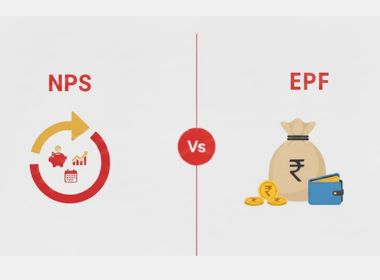Search Suggestions
- Gold Loan
- Money Transfer
- Mutual Funds

What is the difference between a chit fund and a mutual fund?
The idea behind any investment is to get more than we initially invested. We hope that the generated profits will come in handy in times of need. An ideal financial plan should be based on the investor’s financial goals and risk appetite. So, the investment tools also vary according to one’s profile and objective.
It is important to diversify your portfolio with different asset classes. Both Mutual Funds and Chit Funds pool money from investors, albeit for different reasons. In a mutual fund investment, the fund manager invests the pooled money in securities such as stocks, bonds, etc. In a chit fund, the pool of investors is usually small and the group shares a common purpose. Mutual funds come under the purview of the regulatory body, SEBI. However, a chit fund is usually managed by a mutually decided head person or foreperson
How does a Chit Fund work?
Chit funds are usually started by a small group of people who share common characteristics. The members could be people in the same business, residents of a housing society, relatives, etc. It is more prevalent in non-urban areas. The objective of such a fund is both saving and borrowing. A chit fund is a rotational scheme where each member contributes a fixed sum periodically (usually monthly). The duration of the scheme is pre-decided. In most cases, the number of months for which the scheme runs is equal to the number of subscribers.
Once the money is collected from the subscribers every month, an auction or lucky draw is held for the pooled amount. In a lucky draw, the person whose name comes up gets to take home the pooled amount after subtracting the organizer’s fees and commission. In the case of an auction, the subscriber who bids the lowest value for the sum takes home the amount after subtracting the organizer’s fees and commission. The difference between the pooled amount and the bid amount is distributed equally among the members.
Types of Chit Fund
Registered Chit funds: These are registered with registered firms of societies and chit funds and are regulated by the RBI. These funds are part of the Chit funds Act 1982 and are available across all the states of India.
Unregistered Chit Funds: These are not governed by any Act and are usually operated among friends, families, and acquaintances.
Online Chit Funds: These are similar to unregistered chit funds but are operated online. They may carry fraud risks as the subscribers in the group may not know each other.
How do Mutual Funds Work?
Mutual funds are professionally managed investment tools that invest money pooled from investors in securities such as stocks, bonds, etc. Common mutual fund types are equity funds. Debt funds, liquid funds etc. These are managed by an Asset Management Company (AMC). Fund managers who manage the corpus have sound knowledge of the markets.
Difference between Mutual Funds and Chit Funds
Although both mutual funds and chit funds work with pooled money from investors/ subscribers, the characteristics, objectives, and working vary greatly.
Mutual Fund | Chit Fund | |
|---|---|---|
Objective | Capital appreciation through returns on investment. | Short term borrowing and saving. |
Operated by | Knowledgeable and experienced fund managers appointed by an Asset Management Company (AMC). | Operated by Knowledgeable and experienced fund managers appointed by an Asset Management Company (AMC) Generally, the fund is managed by a mutually decided upon headperson or foreperson. |
Expenses/Commissions | AMCs usually charge 2-3% as fund management charges. | The organizer of the fund may charge 5% or more for services provided. |
Growth Opportunity | Growth Opportunity Offers growth opportunities for your money based on market conditions. | It doesn’t offer any return or interest on the money. |
Documentation | For first time investors, the KYC process could be extensive. | Minimal or no documentation. |
Regulatory Body | Regulated by SEBI | Registered chit funds are regulated by the Registrar of Chits appointed by respective state governments under Section 61 of Chit Funds Act 1982. |
Market Risks and Volatility | These perform with accordance to market conditions. There is no guarantee of the principal amount. | Not exposed to the market, hence free of any market risk. |
Taxation | Dividends and earnings are taxable. | Generally non-taxable but must be declared. |
Conclusion
Both chit funds and mutual funds are investment tools that serve different purposes. Chit funds have earned a bad reputation with the discovery of frauds. However, registered and regulated chit funds continue to be a good microfinance source, especially for people in non-urban areas. Always do your due diligence and choose wisely an investment route that matches your goals, objectives, and risk profile.
- Invest in Mutual Fund
- Systematic Investment Plan
- Mutual Fund Calculator
- Liquid Mutual Fund
- Debt Funds
- Balanced Funds
- Equity Linked Schemes
- Tax Saving Schemes
CATEGORIES
OUR SERVICES
-

Credit Score
-

Gold Loan
-

Personal Loan
-

Cibil Score
-

Vehicle Loan
-

Small Business Loan
-

Money Transfer
-

Insurance
-

Mutual Funds
-

SME Loan
-

Corporate Loan
-

NCD
-

PAN Card
-

NPS
-

Custom Offers
-

Digital & Cashless
-

Milligram Rewards
-

Bank Mapping
-

Housing Finance
-

#Big Business Loan
-

#Gold Loan Mela
-

#Kholiye Khushiyon Ki Tijori
-

#Gold Loan At Home
-

#Sunherisoch
RECENT POSTS

Gilt Fund vs Liquid Fund: Full Form, Meaning & SIP Guide
Know More
XIRR in Mutual Funds & SIP: Full Form, Meaning, Formula and How to Calculate
Know More
7 Key Factors to Consider Before Taking an SME Loan
Know More
Difference Between Black Gold and Gold: Everything You Need to Know
Know More
NPS vs EPF: Everything You Need to Know About Retirement Savings
Know More
What is a Credit History? Impact on Credit Score and Credit Report
Know More
Loan Closure Vs. Loan Settlement: Meaning, Benefits, and CIBIL Score Impact
Know More
Is Silver the New Gold? A Look at 2025 Price Trends
Know More
What Are the Various Types of Equity Funds and How They Work?
Know More
Why Are Gold Loans Becoming the Most Preferred Financial Option in 2025?
Know MoreFIN SHORTS

What Are Co-Pay and Deductibles in Insurance Policies?
Know More
Should You Take a Loan Against Your Mutual Fund or SIP?
Know More
Top 5 Best Mid-Cap Mutual Funds to Watch in 2026
Know More
Are Personal Loans Right for Retirees? Key Points to Consider
Know More
What Happens to a Personal Loan After the Borrower Dies?
Know More
Best Loan Choices for Credit Scores of 580 and Below
Know More
7 Reasons Why a Gold Loan Is the Best Option for Small Businesses
Know More
10 Reasons Why People in India Prefer Physical Gold
Know More
Real Estate vs Gold: Which Is a Better Investment in India?
Know More
10 Common Mistakes That Make Investors Lose Money in Mutual Funds
Know More
10 Reasons Why Gold Has So Much Appeal in Uncertain Times
Know More
7 Ways Settling Debt Can Impact Your CIBIL Score
Know More- South +91 99469 01212
- North 1800 313 1212


